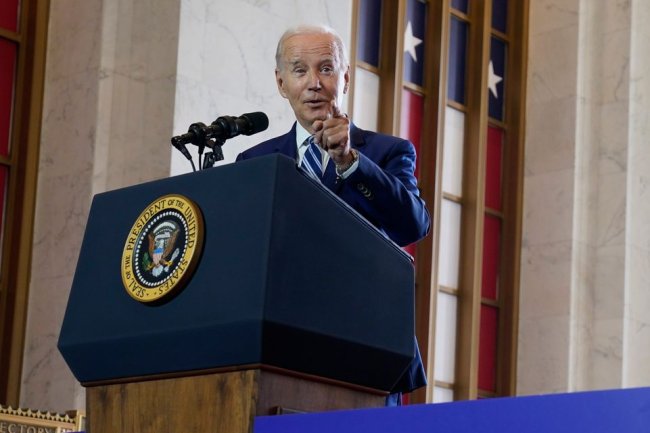Israeli Doctors Go On Strike Over Netanyahu’s Judicial Overhaul
Political opposition, the Israel Bar Association petition the Supreme Court to strike down the new law Police used water cannons on protesters in Jerusalem. Photo: Amir Levy/Getty Images By Dov Lieber July 25, 2023 6:20 am ET TEL AVIV—Doctors and medical workers in Israel went on strike Tuesday in protest against the passing of the first bill in a judicial overhaul that is being carried out by the government of Prime Minister Benjamin Netanyahu. The bill, which was pushed through by the ruling coalition despite months of protests, sparked mass demonstrations against the government. The police said late Monday that 15 protesters were arrested for rioting and attacking police, with authorities forcibly removing some demonstrators blocking streets in Tel Aviv. Police use


Police used water cannons on protesters in Jerusalem.
Photo: Amir Levy/Getty Images
TEL AVIV—Doctors and medical workers in Israel went on strike Tuesday in protest against the passing of the first bill in a judicial overhaul that is being carried out by the government of Prime Minister Benjamin Netanyahu.
The bill, which was pushed through by the ruling coalition despite months of protests, sparked mass demonstrations against the government. The police said late Monday that 15 protesters were arrested for rioting and attacking police, with authorities forcibly removing some demonstrators blocking streets in Tel Aviv. Police used water cannons to disperse protesters in Tel Aviv, police footage showed.
On Tuesday, besides the strike called by the medical workers, it wasn’t clear if there were any other major demonstrations planned. Protests have often been spontaneous and usually in the evenings.
Israel’s largest labor union, Histadrut, said Monday it was preparing for the possibility of calling a general strike, and some protesters were pressing it to make such a move. However, the union decided against declaring a general strike for now.
The Supreme Court will now have to decide whether to accept the petitions it has received from the Israel Bar Association and members of the opposition asking for it to strike down the law that limits its own powers.
Israeli Prime Minister Benjamin Netanyahu’s coalition on Monday passed the first bill in a contentious judicial overhaul that seeks to limit the power of the Supreme Court. WSJ’s Dov Lieber reports from Jerusalem. Photo: Corinna Kern/Reuters
The bill that passed Monday takes away the court’s ability to nullify government decisions it finds “unreasonable in the extreme,” a standard that is used by the court to ensure government decisions are taken with appropriate considerations. This includes the hiring and firing of key government appointments such as government ministers, the attorney general and heads of the security services.
The Israeli Medical Association said it called the strike because the new law removes judicial scrutiny over the political leadership of the health ministry, which it said would have “serious consequences for the health system, patients and doctors.” The association said it had lobbied the government to keep that judicial scrutiny in place over the health system.
The legislation that was passed on Monday was an amendment to one of Israel’s so-called basic laws—piecemeal legislation that is the closest thing the country has to a constitution.
Israel’s Supreme Court has never struck down a basic law before. If the court decides to hear the petitions, it could put it in direct conflict with the government.
Israel’s National Security Minister Itamar Ben-Gvir
said a move by the top court to strike the bill down would be seen as “an attempted coup.”It is the first in a series of laws the coalition government wants to pass to limit the power of the court system. Next up is a bill that would give lawmakers more power to select judges—a move that is more contentious than the bill passed on Monday. It could be voted on in the fall.
The law’s passage marks a pivotal juncture for Israeli society. It presents a decisive moment for thousands of military reservists, who have said they would quit, while business and union leaders have also threatened mass work stoppages.
Write to Dov Lieber at [email protected]
What's Your Reaction?

















